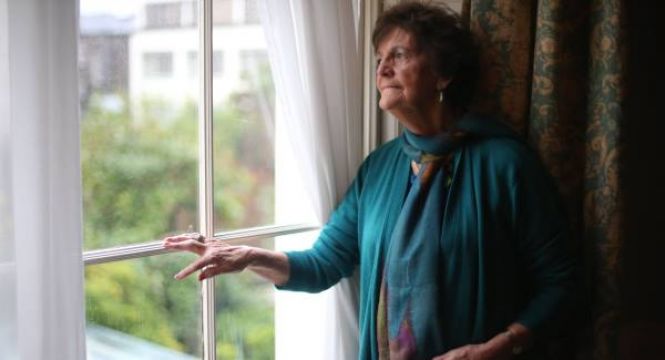Two legal challenges against the final report of the Commission of Investigation into Mother and Baby Homes have opened before the High Court.
The lead challenges, brought by retired nurse Philomena Lee and Galway-based Mary Harney, both of whom are former residents of mother and baby homes, will address a core claim made in nine separate but similar actions concerning the influence of section 34 of the Commission of Investigation Act 2004.
The applicants claim section 34 required that they, as persons unnamed but who are allegedly identifiable in the commission’s final report, be given the commission’s draft report and a chance to make submissions on it.
It is alleged that failure to do so breaches section 34 and the fundamental rights of the applicants under the Constitution and European Convention on Human Rights.
On behalf of the applicants, Michael Lynn SC, instructed by Abbey Law, said he would address issues of fact and then of statutory interpretation of the relevant section.
Findings 'at odds'
He said there were “numerous” findings in the commission’s report that are “at odds” with the testimony given by Ms Lee to the confidential committee.
Mr Lynn pointed to “highly publicised” information about Ms Lee outside the commission’s report that is in the public domain, which is relevant to alleged factual issues with the report. “Many many people are aware”, he said, of parts of her life relating to her experience in the home, as it was made the subject of a book and later a film featuring Judi Dench as Ms Lee.
Ms Lee was sent to the Seán Ross mother and baby home in Co Tipperary in 1952 after becoming pregnant at the age of 18. Her son was sent in 1955 to a US couple for adoption when he was aged three.
He said Ms Lee claims that she gave testimony to the confidential committee saying she was not given any time to consider a document that she was told to sign which relinquished her rights to her son. He said she simply did what she was told.
Mr Lynn said this is relevant to the commission’s findings that there was “no evidence” to support the opinion of some women that their consent to adoption was not full, free and informed.
'Incarcerated'
He said the report also found that women were not “incarcerated”, in the strict meaning of the word, in the homes and were always free to leave. However, he said Ms Lee had given testimony that girls who ran away from Seán Ross were returned by gardaí.
The commission’s report further states that there was no evidence that women who gave birth in the homes were not offered pain relief, he said. This, he said, “runs contrary” to Ms Lee’s affidavit given to the committee, which “made it clear” that she did not receive pain relief or any form of medical care when giving birth.
Now in her 80s and living in England, Ms Lee claims she is identifiable, despite not being named, in the commission’s final report, effecting that she was legally entitled to get and make submissions on its draft findings before the final version was published. Failure to do this breached her rights, she claims.
Mr Lynn noted that Ms Lee did not desire anonymity in the report, and she would have happily given direct oral evidence to the commission, but she was not invited to do so.
He submitted that a person has a right to an “accurate record” of their evidence given during an inquiry. A person also has a right to make representations as to how that evidence should be reviewed in the context of redress, he said.
Accuracy
Ms Lee and Ms Harney, who is in her 70s, claim that the final report does not accurately reflect their evidence to the commission.
Ms Harney, born in the Bessborough mother and baby home in Cork in 1949, claims she is readily identifiable in the final report and was thus entitled to make submissions that the commission should not have omitted evidence she gave about abuse and neglect while boarded out between 1951 and 1954.
The cases are being heard over two days before Mr Justice Garret Simons, with the State to present its case applicants and the Irish Human Rights and Equality Commission (IHREC). The judge previously suggested that it might aid the applicants, now totalling nine, to identify lead cases, which led to the selection of Ms Lee’s and Ms Harney’s cases.
As the commission has been dissolved, the challenges are brought against the Minister for Children, the Government, Ireland and the Attorney General.
IHREC will make submissions focusing on the rights of victims of historic abuse to access justice and an effective remedy.
In opposing the cases, the State maintains it had no role or involvement in how the commission carried out its investigation or regarding its recommendations, which are not binding.
The State points to the commission’s independence, and the scope and complexity of the matters investigated, saying it does not accept the commission’s failure to refer, in specified paragraphs of its final report, to evidence of the two applicants means those paragraphs are unfair or unlawful.







